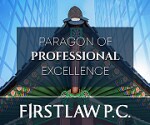Proprietary information is the cornerstone on which tech companies hone their competitive advantage, making the protection thereof crucial for sustained innovation and growth. In this regard, there have been two noteworthy developments recently in South Korea:
A revision of the Sentencing Guidelines for Intellectual Property and Technology Infringement Offences (the Sentencing Guidelines); and
The rendering of a landmark decision by the Supreme Court that lowers the burden of proof, which is designed to significantly heighten the level of protection of trade secrets and technologies.
Revision of sentencing guidelines
In March 2024, the Sentencing Commission of the Supreme Court announced revised sentencing guidelines concerning intellectual property and technology infringement offences. The revised guidelines came into effect in July 2024 to implement more rigorous standards for the disposition of trade secret misappropriation and industrial technology pilferage cases.
Increased sentences for trade secret misappropriation
Following the 2024 amendments to the Unfair Competition Prevention and Trade Secret Protection Act (UCPA), the Sentencing Commission increased the recommended sentencing ranges for trade secret misappropriation. This change marks a significant escalation in the severity of penalties for these offences, as seen below.
Category | Mitigated sentence range | Standard sentence range | Aggravated sentence range |
Misappropriation within Korea | Up to 10 months => 6 to 18 months | 8 months to 2 years => 10 months to 3 years | 1 to 4 years => 2 to 5 years |
Misappropriation outside Korea | 10 to 18 months => 10 months to 3 years | 1 to 3.5 years => 1.5 to 5 years | 2 to 6 years => 3 to 8 years |
These upgrades underscore a policy shift towards more severe penalties for trade secret violations.
New sentencing standards for industrial or national core technology infringement
The revised Sentencing Guidelines establish separate sentencing standards for offences involving "industrial technology" and "national core technology". The new Sentencing Guidelines impose stricter penalties on violations, especially those that occur overseas.
Category | Mitigated sentence range | Standard sentence range | Aggravated sentence range |
Misappropriation of secrets obtained during employment | Up to 8 months | 6 to 18 months | 1 to 3.5 years |
Infringement of industrial or national core technology within Korea | 8 months to 2 years | 1 to 4 years | 2.5 to 6 years |
Infringement of industrial technology outside Korea | 1 to 3.5 years | 2 to 6 years | 4 to 10 years |
Infringement of national core technology outside Korea | 2 to 5 years | 3 to 7 years | 5 to 12 years |
Given that the judge has discretion to increase or decrease the sentence by up to 50% of the recommended term, the maximum possible sentence for overseas infringement of national core technology has been raised to 18 years, while the maximum possible sentence for infringement of industrial technology has been increased to 15 years. These stricter penalties are aimed at better protecting domestic companies and enhancing national security by imposing heavier punishment on those who illicitly exploit critical technologies.
The establishment of separate categories for industrial technology and national core technology reflects the Korean government's prioritisation of safeguarding advanced technologies that are vital to national interests. By differentiating these from general trade secret misappropriation, the Sentencing Guidelines acknowledge the heightened risks and potential damages associated with such crimes. This distinction also aligns with global trends, where many countries are increasingly focusing on protecting their technological advancements and intellectual property from foreign threats.
Mitigating and aggravating factors for sentences
The Sentencing Guidelines provide several factors to be considered in determining a sentence of imprisonment, as follows.
Mitigating factors | Aggravating factors |
Minimal actual harm – when the leaked trade secret or industrial technology was recovered without being utilised externally. | Premeditated and organised crime – crimes that were meticulously planned or carried out by a group with divided roles. |
Coercion or pressure – when the perpetrator was forced to commit the crime under threat or pressure. | Severe damage to the victim – situations where the victim's business faced critical financial damage or potential bankruptcy. |
Unintentional violation – in cases where the infringement was not deliberate. | Impact on national security – crimes involving national core technologies or strategic technologies with significant national impact. |
Voluntary surrender and whistle-blowing – when the perpetrator voluntarily confesses or exposes the entire scope of the organised crime. | Breach of special confidentiality obligations – perpetrators who had a specific duty to maintain confidentiality but failed to do so. |
Victim’s forgiveness or substantial compensation – if the victim forgives the perpetrator or substantial compensation has been awarded. | Repeated or prolonged crimes – offences that were repeated or continued over a long period. |
The revised Sentencing Guidelines have introduced stricter criteria for granting probation in cases of trade secret misappropriation and technology infringement. The new standards no longer consider a clean criminal record as a substantial mitigating factor, and identify industrial technology infringement as a significant aggravating circumstance. This approach is expected to deter these crimes more effectively and increase the likelihood that even first-time offenders will face incarceration.
Implications
The increased penalties and stricter standards for probation serve as a strong deterrent against trade secret misappropriation and technology infringement. Companies and individuals are now more likely to face severe consequences for engaging in such activities, thereby reducing the incidence of these crimes.
Landmark Supreme Court decision
On May 30 2024, the Korean Supreme Court rendered a landmark decision (2022 Do 14320) on a criminal violation of the UCPA. The decision has had a significant impact on the level of proof required to show whether an individual who has misappropriated a trade secret has acted with the intent or purpose of making improper profits or injuring a trade secret holder, as set forth in Article 18(2) of the UCPA of 2018.
Background
The case involved four defendants:
A former employee (Defendant 1) of an adhesive manufacturing company (the Victim Company);
The director of the R&D centre (Defendant 2) of a first competing company where Defendant 1 worked after leaving the Victim Company; and
The director of the R&D centre (Defendant 3) of a second competing company (Defendant 4) where Defendant 1 subsequently worked after leaving the first competing company.
Defendant 1, while employed at the Victim Company, had access to proprietary information for the manufacture of waterproof adhesives used in certain mobile phones and made unauthorised photocopies of relevant documents containing the manufacturing information. After leaving the Victim Company, Defendant 1, at the coaxing of defendants 2 and 3, unlawfully disclosed the trade secret information and materials to the two competing companies, so as to help them develop competing products.
Lower court decisions
In the first instance, heard by a single judge of the Daejeon District Court, all defendants were found guilty of violating Article 18(2) of the UCPA of 2018, which stipulates that “[a]ny person who has acquired, used, or disclosed to any third party, trade secrets for the purpose of making an improper profit or causing damage to a person who holds the trade secrets shall be punished by imprisonment with labour for not more than five years or by a fine not exceeding 50 million won.”
On appeal, a collegiate panel of the court overturned the lower court’s decision. The appellate court read the relevant statutory clauses – i.e., Article 18(1) and (2) of the UCPA – to the effect that, in order to hold an accused criminally liable thereunder, a showing or proof of the presence of, in addition to intent, an extra element is required: existence of a specific “purpose of gaining improper profit or causing damage to the trade secret holder”.
The court reasoned that this extra proof requirement stemmed from the constitutional mandate for the protection of an individual’s freedom of employment or changing jobs, and this fundamental right, directly related to human dignity, should not be lightly disturbed or restricted for the protection of economic interests, such as property rights.
The court, orbiter dicta, further stated that the existence of such purpose, if easily recognised, would unduly hamper an individual’s career opportunities, and that there is a question as to whether general skills, knowledge, experience, and customer relationships accumulated while working for a company should be considered as the company's trade secrets. The appellate court was of the view that even if these were accumulated at the company’s expense, they should be attributed to the individual employee and not be considered as the company’s trade secrets.
Accordingly, the court found that while Defendant 1 had taken confidential information, it could not be concluded that he had clear knowledge of the adhesive manufacturing methods being trade secrets, nor could it be said that Defendant 1 took the photocopies of the documents with the specific purpose of obtaining unfair profit or damaging the Victim Company, nor that the other defendants had used this information for such purpose.
Supreme Court decision
The Supreme Court disagreed with the appellate court and held that the proprietary methods for manufacturing adhesives, which had never been made available to the public, constituted trade secrets within the purview of the UCPA. The Supreme Court noted that:
The proprietary manufacturing information included specific formulations and processes that provided a competitive advantage to the Victim Company;
The Victim Company invested significant amounts of money to develop the relevant technology; and
Defendant 1 signed a non-disclosure agreement that imposed on him a duty to hold the information in confidence for a substantial period even after leaving the Victim Company.
The Supreme Court ruled that, since the information constituted trade secrets, the defendants knew, or should have known, that they could not use or disclose the relevant information without the Victim Company’s permission.
The Supreme Court concluded that, in light of the defendants’ profession and experience, the motivation and circumstances of their actions, and the relationship between the Victim Company and the defendants, there was sufficient reason to find that Defendant 1 used the manufacturing information and disclosed same to the other defendants with the intent to gain unjust profit or cause damage to the Victim Company, and that defendants 2 to 4 also acquired the trade secrets and used them with the intent to gain unjust profit or cause damage to the Victim Company.
Implications of the ruling
The decision effectively strikes down the appellate court’s attempt to introduce a higher level of mens rea in defining or proving a crime to have violated the UCPA, eliminates any distinction between intent and purpose to commit a crime under the UCPA, and elucidates that a violator’s intent or purpose to misappropriate trade secrets may be inferred from circumstantial evidence once the information used or leaked is established as trade secrets, even in the absence of direct evidence showing such intent or purpose.
This ruling sends a strong deterrent message to the industry that acts of industrial espionage or trade secret misappropriation will no longer be condoned with impunity under the aegis of the constitutional right of freedom of employment, buttressing the recent sentiment prevalent in Korea calling for a stronger deterrent against trade secret misappropriation.
Implications of the recent developments in Korean trade secrets protection
The protection of trade secrets and proprietary information involving industrial/national core technologies in Korea has been significantly bolstered by the revised Sentencing Guidelines and the Supreme Court's landmark decision. These developments reflect Korea’s strong commitment to safeguarding intellectual property and technology, deterring misappropriation, and promoting fair competition.
As Korea continues to enhance its legal framework concerning trade secret protection, companies and individuals must remain vigilant and proactive in protecting their valuable proprietary information.













